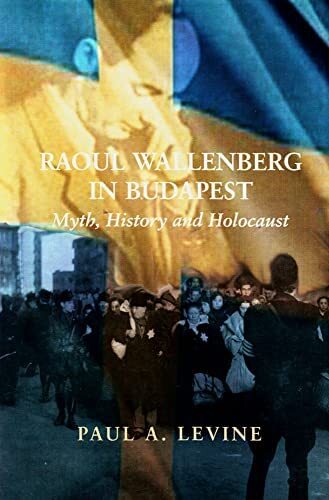Raoul Wallenberg in Budapest : myth, history and Holocaust
Item
Title
Raoul Wallenberg in Budapest : myth, history and Holocaust
Description
"Raoul Wallenberg is a genuine hero of the Holocaust, revered and honored by millions worldwide for his humanitarian achievements in Budapest in 1944. During his often dramatic six months in that tragic city, Wallenberg and his diplomatic colleagues saved and assisted many thousands more Jews than did the more famous Oskar Schindler. The numerous existing publications about Wallenberg have been hagiographic in nature rather than historical, characterized by inaccuracies, exaggerations and a lack of historical context." "Paul A. Levine has studied Wallenberg and Swedish diplomacy during the Holocaust for twenty years. Using contemporary Swedish diplomatic documents never before studied, Levine places Wallenberg in an accurate historical context, providing an almost daily picture of his activities, including his essential negotiations with Hungarian officials, German and Hungarian Nazis, and other neutral diplomats.
Through careful analysis of Wallenberg's own personal and diplomatic correspondence, this study provides a richer and more nuanced picture of this fascinating burgenerally misunderstood figure. Though not a biography, Wallenberg's up-bringing is explored, with the motives and goals for his mission analysed. This study replaces the one-dimensional caricature which has long dominated the public's view of Wallenberg with a more complicated individual who made history during the Holocaust." "Levine also explores how the many myths about Wallenberg and his mission have played a significant role in distorting both the public's understanding of him, and of how he actually worked to assist and save thousands of Jews. Rather than being an 'angel of rescue', as he is some times referred to, Wallenberg was a very real man whose status as a Swedish diplomat was more crucial to his ability to act than his own motivations.
Often referred to as an archetypical 'altruisric personality', this study demonstrates that Wallenberg was hardly a 'hero-in-training' before Budapest. It also argues that by dispensing with these myths, Wallenberg's true historic worth as a moral symbol is enhanced rather than diminished."--Jacket
Through careful analysis of Wallenberg's own personal and diplomatic correspondence, this study provides a richer and more nuanced picture of this fascinating burgenerally misunderstood figure. Though not a biography, Wallenberg's up-bringing is explored, with the motives and goals for his mission analysed. This study replaces the one-dimensional caricature which has long dominated the public's view of Wallenberg with a more complicated individual who made history during the Holocaust." "Levine also explores how the many myths about Wallenberg and his mission have played a significant role in distorting both the public's understanding of him, and of how he actually worked to assist and save thousands of Jews. Rather than being an 'angel of rescue', as he is some times referred to, Wallenberg was a very real man whose status as a Swedish diplomat was more crucial to his ability to act than his own motivations.
Often referred to as an archetypical 'altruisric personality', this study demonstrates that Wallenberg was hardly a 'hero-in-training' before Budapest. It also argues that by dispensing with these myths, Wallenberg's true historic worth as a moral symbol is enhanced rather than diminished."--Jacket
Creator
Paul A. Levine
